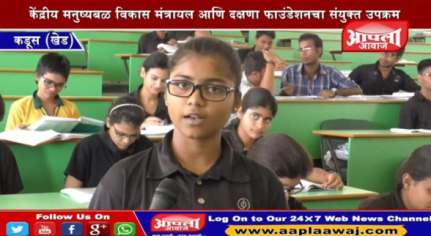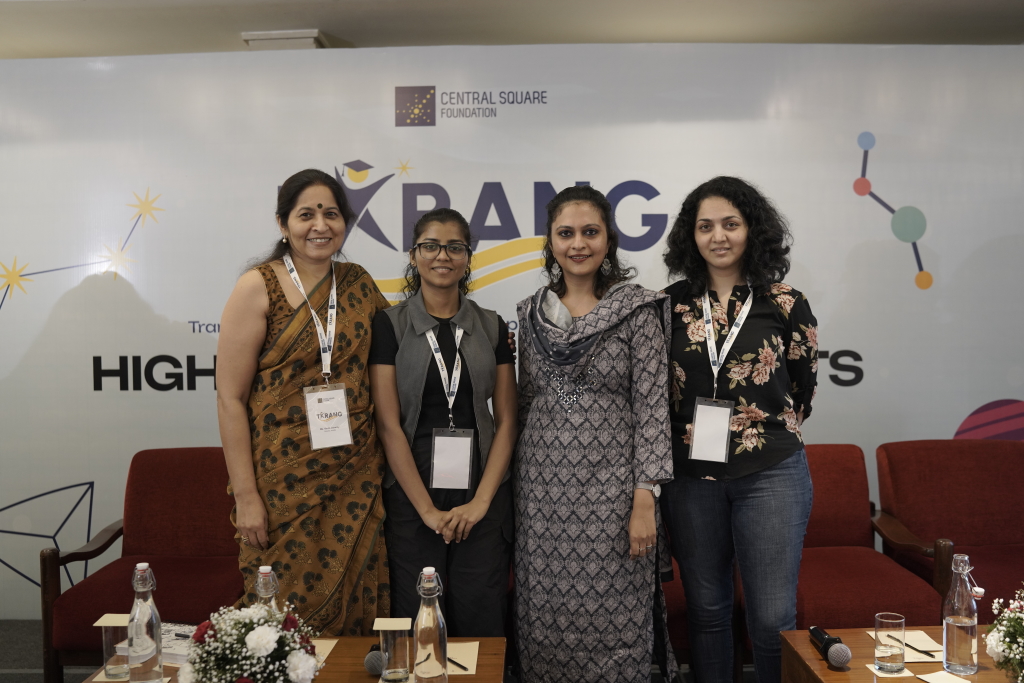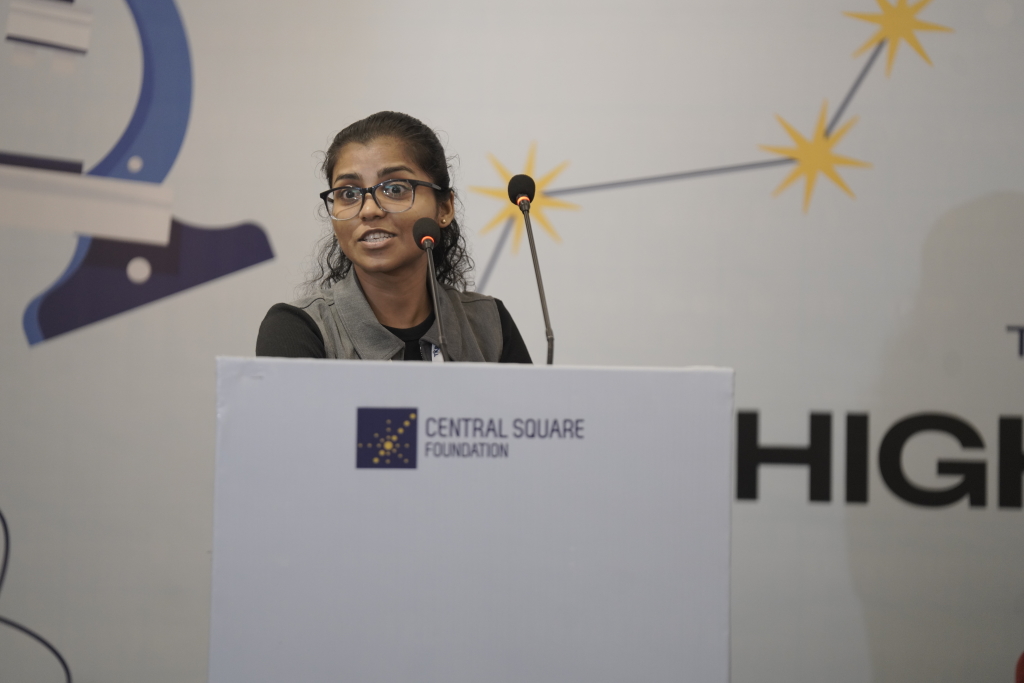Yashika Salian, an alumna of Jawahar Navodaya Vidyalaya (JNV) Dakshina Kannada and IIT Kanpur, exemplifies how the right guidance and persistence can unlock possibilities. Her story is a testament to what happens when hidden strengths are not just recognised but nurtured with care, support and persistence.

Recognising potential in children, especially those whose talents are still taking shape, requires more than spotting early signs of ability; it demands structured and sustained support. For students who demonstrate above average or high potential, whose curiosity and drive often outpace their environment, nurturance plays a pivotal role. This nurturance goes beyond academics, it involves building confidence through mentorship, offering exposure to enriching experiences, creating safe spaces for risk-taking and failure and ensuring access to resources like strong teaching and peer learning.
The Jawahar Navodaya Vidyalaya system stands as a powerful model at scale of how structured nurturance can help students shape better life choices. Established by the Government of India, under the National Policy on Education 1986, JNVs are residential schools aimed at identifying and educating talented students from rural areas, free of cost. The vision is simple but revolutionary: talent exists in all parts of the country, opportunity does not.

Today, there are 661 JNVs across India, serving over 2,87,000 students, with a striking 87% of them coming from rural backgrounds. Admission is through a national entrance exam at the Grade 6 level, ensuring a merit-based, inclusive process. Once admitted, students are immersed in an ecosystem of comprehensive guidance — strong academics coupled with mentorship, peer learning, extracurricular exposure and a supportive residential environment that builds discipline, resilience and self-belief. In a world where opportunity often shapes outcomes, the JNV model affirms that potential exists everywhere and with the right support, every child can thrive. Yashika’s journey is a powerful reminder of what becomes possible when belief and opportunity come together.
The Early Spark: Initial Experiences of JNV
Born and raised in Mangalore, Karnataka, Yashika spent much of her childhood under the care of her grandparents while her parents worked in Surat. As a child, she often wondered why they had left her behind, only later understanding that her parents had made that difficult choice to give her access to better schooling. Growing up in a close-knit, matrilineal family where women carried forward the family name but men still held most decision making power, Yashika often heard her mother speak openly about her own unfulfilled dreams of continuing her education. Those conversations quietly instilled in Yashika a determination to study hard and change that narrative for herself.
Her curiosity for science began early. Around the fifth grade, she watched a relative proudly build a makeshift vacuum cleaner from a Pepsi bottle and some motors — a moment that lit the spark.
“I thought, okay, science is something I want to pursue. I want to build something like this,” she recalls.
From then on, she began declaring with childlike conviction that she would become a scientist.
Yashika’s journey into Jawahar Navodaya Vidyalaya began with a setback. Her first attempt at the entrance exam, at the age of 11, ended in disappointment and self-doubt. She recalls that she overheard a relative say that JNVs are only for ‘very smart kids’, a remark that made her doubt her capabilities. Later, visiting her cousin, who was also studying at a JNV, Yashika peered into the chemistry lab and saw the equipment housed there. She was fascinated by the sight, which ignited her passion to become a scientist — a dream she first had as a young child. It was this that also inspired her to try again for lateral entry (an admission test held for new entrants in higher grades to JNV), which she successfully cleared in eighth grade.
Entering JNV later than most, Yashika worried she would fall short of her peers in learning. Yet, a small moment began to unravel these fears.
“After two weeks, my Math teacher gave a Geometry problem in the class and I solved it pretty quickly. He walked up to my bench and saw my notes and just walked away. I was a bit scared. Maybe I had done something wrong, because otherwise, how are others still solving?” But a classmate then stepped in, telling her that she was not behind after all, but had rather finished first.
Her potential became even more evident during a routine science test. The class had turned it into a friendly contest and when the results came in, Yashika topped the list — an unexpected win that quietly reaffirmed her belief in her own abilities.
Igniting the Flame: Support and Mentoring
Throughout her journey at JNV, her classmates and teachers played a crucial role in recognising and encouraging her talent. With the school’s supportive peer-learning ecosystem, she found herself collaborating with peers across grades.
“I was the person teaching Math and Science to everyone in the class and to the peers who were in other classes as well,” she says.
Mentorship and systemic support played a key role in Yashika’s journey when the time came to work towards a career path. She first learned about the IITs when Avanti Fellows, an organisation that provides free tutoring and counselling to students in low-income rural communities, visited her school; before that, she had never heard of the institute. It was this intervention that pushed her to think beyond the National Institute for Technology (NIT) Karnataka, an institution she knew of and aimed towards as a local student of the region.
Yashika was determined to break new ground. No one from her school had ever made it to IIT, yet she set her sights firmly on that goal. With guidance from Avanti Fellows and her seniors, she prepared with focus and a sense of resolve. The path, however, was not without setbacks. After missing out on admission in her first attempt, she chose to take a gap year and try again. This was a decision that many questioned, especially since she had scored enough to secure a seat at NIT. Her resolution was also strengthened by her parents’ support, despite their initial reservations.

She chose to enroll in the one-year tutoring programme, offered by the Dakshana Foundation, an initiative focused on preparing underprivileged students for highly competitive examinations. This decision ultimately led her to succeed and crack the IIT Kanpur entrance exam in the consecutive year, making her the first from her school and community to join IIT Kanpur’s undergraduate programme of Chemical Engineering.
Challenges and Leadership: The Role of Inclusivity
Yashika’s journey towards excellence has been inspired by a drive to gain personal and financial independence from a patriarchal landscape.
“I come from a matrilineal family where one’s surname comes from their mother’s side. Even then, most decision making power and earning capabilities are held by men. My mom used to speak openly about her struggles and her wish to continue her education, which she could not. That made me realise that I have to actually study well and earn well.”
As she showcased academic excellence and resilience through the ups and downs of school and entered one of the most prestigious technical institutes in India, inclusivity continued to be a challenge.
At IIT Kanpur, she was one among 50 girls in a batch of 830 students. Gender bias remained a persistent barrier. Yashika also shares that she was deterred from choosing Mechanical Engineering as her field of study, not by capability or scores, but by deeply ingrained notions of what women were ‘supposed’ to do. Motivated by her own struggles, Yashika took on a new mission of building a more inclusive community. She founded a programme for IIT Kanpur alumnae to support and connect women navigating similar challenges.
Her experience underscores the importance of expanding enrolment, mentorship and access to resources for young girls across the country, creating pathways to excellence that are truly inclusive for all.
Seeds of Change


Yashika’s journey illustrates that the path to excellence for high-potential students is rarely straightforward. Extraordinary outcomes become possible when such students are identified early and supported through mentorship, resources and ambitious opportunities. Her story demonstrates how systemic support from teachers, parents and institutions can unlock futures by nurturing skills and equipping students to navigate challenges with confidence.
